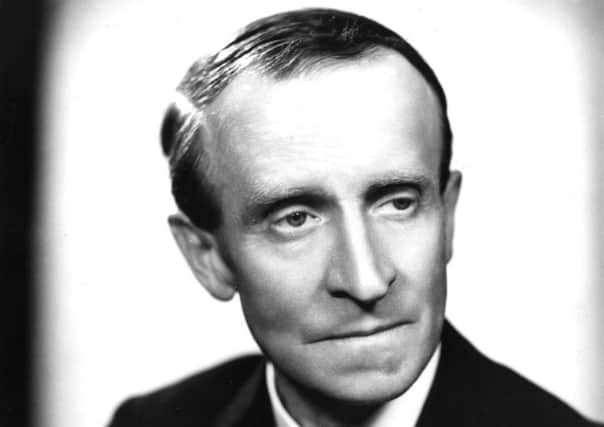Scottish writer's role in Great War propaganda campaign


Now, as centenary commemorations to mark the Great War continue, the Scottish writer’s role in promoting propaganda for the British Government is to be discussed at a special event looking at how public opinion was manipulated. “In the interests of the nation: First World War propaganda” will take place at the National Library of Scotland (NLS) in Edinburgh on Thursday.
The British Government, aided by powerful newspaper barons such as Lords Beaverbrook and Northcliffe and Banffshire-born Sir Robert Donald, editor of the Daily Chronicle, set about vilifying the Germans in order to influence public opinion, to encourage men to volunteer and to persuade America to enter the war. The propaganda techniques used included reporting alleged atrocities which were not verified, and creating the German stereotype of the “ignorant, stupid and cruel Hun”.
Advertisement
Hide AdAdvertisement
Hide AdGerman soldiers were often portrayed as swine. For example, a cartoon by Dutch artist Louis Raemaekers shows German soldiers snorting over the bloodied body of British nurse Edith Cavell, who was shot by the Germans in 1915 for helping more than 200 Allied soldiers escape occupied Belgium.
Buchan was initially recruited by the War Propaganda Bureau to help write a monthly magazine about the war and in spring 1915 became one of five journalists chosen to be attached to the British Army. Buchan went on to become the government’s director of information.
Other notable writers recruited to the bureau include fellow Scots Arthur Conan Doyle and JM Barrie.
Jan Usher, library curator at the NLS who is giving the talk, said: “Buchan was totally behind the use of propaganda. He wrote in a memo that he wanted a ‘wholesome state of public opinion’. Everything was directed at winning the war and personally I think he was good at what he did.
“He also wrote accounts of battles such as the Somme and Jutland. He made them all sound very exciting, and not disasters with huge loss of life.
“The work of the bureau was highly secret with many MPs unaware of it and details did not emerge until 1935.
“We are all a lot more cynical now. Back then many government officials didn’t see propaganda as a dirty word; rather, it was regarded as a necessary evil.”